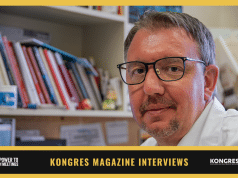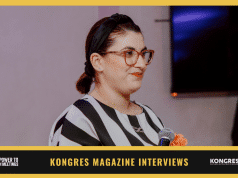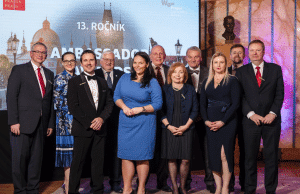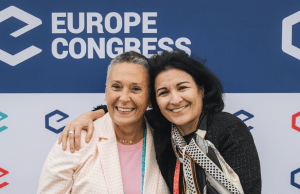Prof. Dr. sc. Davor Miličić is one of the most important people in the world of Croatian medicine: he is the President of the Croatian Cardiac Society and the Head of the Clinic for Heart and Blood Vessel Diseases – the leading Croatian cardiology institution – as well as the dean of the University of Zagreb’s Medical faculty.
To date he has performed more than a hundred times as an invited lecturer at foreign congresses, meetings and universities and he is also a member of scientific boards of a greater number of respectable international congresses and symposiums. Additionally he has organised four national cardiology congresses and several international meetings, since 2009 being is the director of the ‘Cardiology Highlights – an ESC Update Programme in Cardiology’ congress of the European Society of Cardiology.
What is most important to you when organising medical congresses?
The organisation of a medical congress is exceptionally demanding and this is especially so concerning professions such as cardiology. Cardiology is a part of medicine that is developing very dynamically and is dependent on the most advanced technologies – devices and implanted material, and medicine in cardiovascular medicine, other than easing symptoms, preventing and decreasing the flow of some diseases, they can literally save lives. Modern cardiology is made up of sophisticated diagnostic methods and a series of interventional procedures. Therefore there is no quality cardiology congress without original professional and scientific announcements, reviewable lectures that show the newest guidelines and accomplishments from certain parts of the profession, and also pertinent exhibitions, which should offer a review of actual accomplishments of pharmaceuticals as well as diagnostic and therapy technological innovations. If you are a member of a lowly populated nation, then it is your professional and patriotic duty to invite as many foreign experts as possible to national congresses – and if possible, the most respectable representatives of the profession and science, in order to establish a dialogue with local experts, to show global progress in their more narrow area, which they have basically created themselves. This enables not only discussions regarding the development of the profession in these types of meetings, but also positioning the local profession and science in the international context.
Until now I have chaired four national cardiology congresses and have tried to realise a high standard and made each successive congress better than the one before. I have also organised a few important international meetings – Mediterranean Congress of Cardiologists and Cardiology Surgery, Alpe-Adria Annual Cardiology Meeting, and scientific meetings such as the Meeting of Cardiologists of Turkey and Croatia, the European Cardiology Conference for cardiologists, internists and general practice doctors, and ‘Advanced Topics in Cardiology’, as a mutual meeting organised by the University of Zagreb and the Mayo Clinic, USA. The greatest acknowledgment, and also the most demanding task, was given to me in 2009 when I became the director of ‘Cardiology Highlights’ – a professional-scientific congress of the European society of cardiology, which is held every two years. In October, 2011, the aforementioned congress was organised by me for the second time, and my function as director is not limited with a mandate. From this, Croatia became significant, acknowledged as a permanent partner of the European Society of Cardiology – the leading international society from cardiovascular medicine.
Even though it may seem unusual, I have organised all of the above stated congresses with a very small number of colleagues who were ready to sacrifice a lot of private time, at the same time demonstrating extraordinary enthusiasm and loyalty to the mutual cause.
In what way is the PCO agency helping you?
Organising such congresses is possible only through the top-quality technical organisational support of a PCO (Professional Congress Organiser). For example, at the last ‘Cardiology Highlights’ congress held in Dubrovnik, there were 65 invited lecturers, among whom 54 were foreign. You can imagine how perfect the organisation must be for their airplane flights and transfers to a congress, which during its three and a half days needs to offer a preview of everything that is new and important in the world of modern cardiology. There are more than 600 participants here, more than two thirds of them foreigners. Nothing can be late; the programs do not allow for improvisation. The auditoriums need to be technically perfect as well as the organisation of exhibitions of the pharmaceutical and technological companies, satellite symposiums, coffee breaks, work lunches, and social events. Most of the congresses of the Croatian Cardiac Society were organised in cooperation with the travel agency ‘Spektar putovanja’, which is today the leading Croatian medical PCO. ‘Spektar’ has proved itself to be a flawless partner, alongside whom we can peacefully devote ourselves to the professional-scientific organisation of the congresses and completely ‘forget’ all other organisational and technical problems. Personally I owe them a huge debt of gratitude, not only for their excellent organisational skills, their understanding and cooperation, but also for their unbelievable adjustability to last-minute changes and my sometimes capricious demands with the goal of ‘polishing up’ the quality.
How much has the economic crisis influenced the organisation of medical congresses?
The future of medical congresses and meetings also depends greatly on sponsors. The financial crisis is deeply felt and funds are more and more difficult to collect for scientific and professional events. Also, the rules for sponsorship have become stricter; so-called ‘conflicts of interest’ need to be avoided and any type of return relationship with a sponsor, for example preferring his medicine or devices. I personally support the insistence on honour and the elimination of all possible corruptive connotations which could come out of sponsorships.
How do you see the role of sponsors from the pharmaceutical industries?
Sponsors need to participate in their support through so-called ‘unconditional donations’ to professional societies, which then on the basis of professional, and in no way commercial, criteria, financially support their members to participate in professional meetings, for subscriptions to scientific magazines, for membership fees of professional societies and such like.
Finally, there is fear that medical congresses and meetings in today’s form will in time die out and will evolve to become interactive teleconferences through the internet and other virtual media communication. I believe that this is possible only partially, because nothing can replace personal contact, meeting with colleagues and the exchange of professional opinions, which continues also in informal circumstances throughout the congress. If ad hoc is also added to the agreements through future mutual cooperation, projects, registries, guests, scholarships and so on, it is clear that the medical congresses and symposiums will live on regardless of the temptations of modern times.













